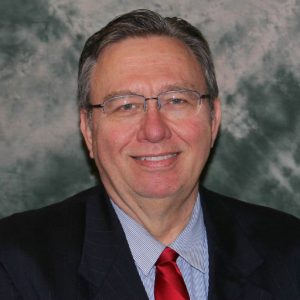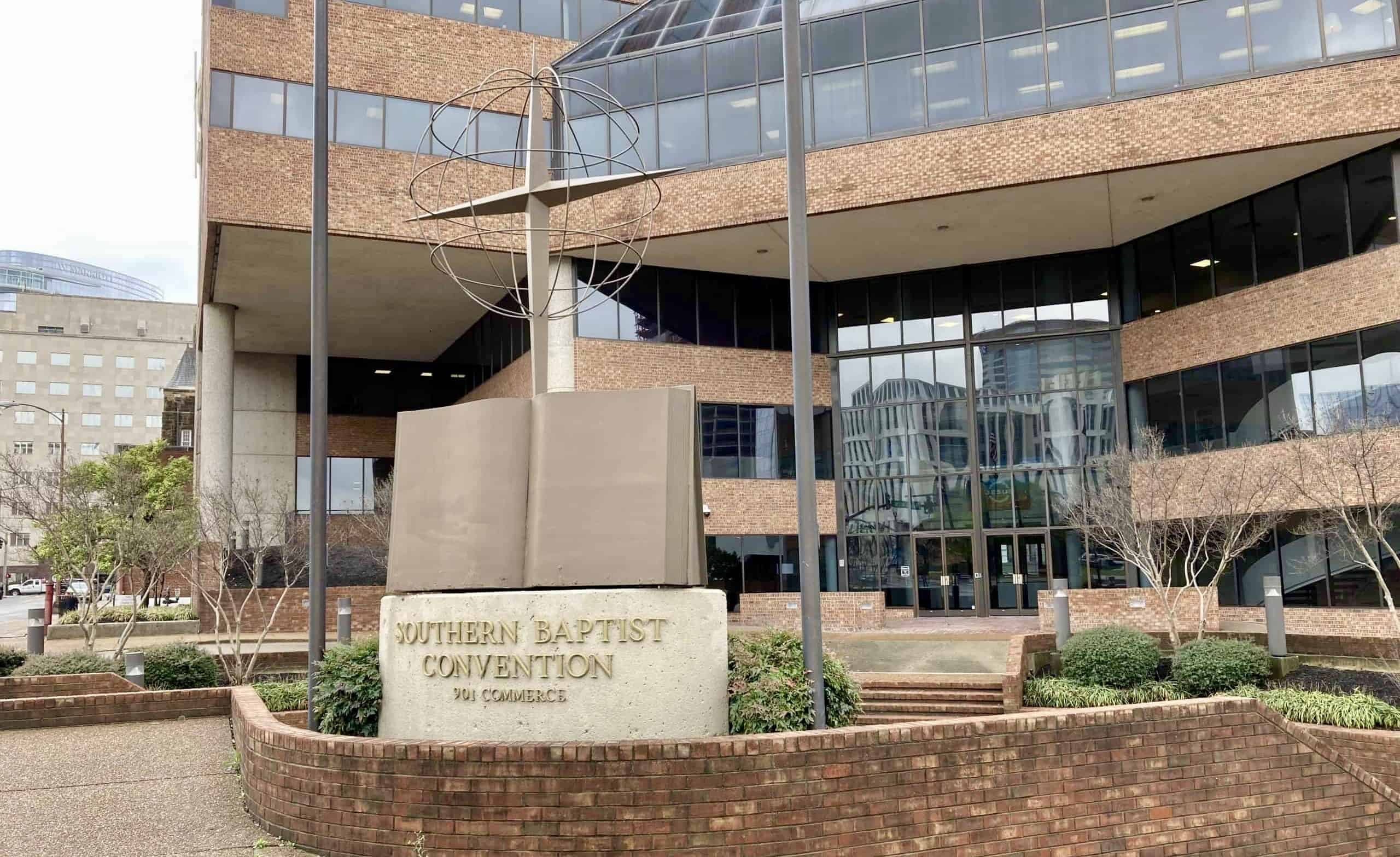It is better to be divided by truth than to be united in error. It is better to speak the truth that hurts and then heals, than falsehood that comforts and then kills. It is better to be hated for telling the truth than to be loved for telling a lie. It is better to stand alone with the truth, than to be wrong with a multitude. It is better to ultimately succeed with the truth than to temporarily succeed with a lie. There is only one Gospel.
—Adrian Rogers—
What are some of the costs — or even potential costs — of believing a falsehood because it is soothing and comforting, even as disturbing warnings are being issued? Those costs can be enormous! The sinking of the “unsinkable” Titanic, which abruptly brought an end to some 1,500 lives, bears this out.

The warnings at least place on us the responsibility to investigate to discover the truth, so we can act on the truth. The truth, however disturbing it may seem to us initially, can be our friend if we take the time and make the effort to acquaint ourselves with it, and if we take appropriate steps based on what we have learned. However, in many situations we do not have a great deal of time to investigate, for the situations often are urgent. We can and should listen carefully to those who have already studied and gained insight, weigh what they tell us against God’s Word, and act to the best of our ability on what we have learned. All the while, we should be praying for God to give us wisdom and discernment.
In the latter part of the sixth and the early part of the seventh centuries BC, the prophet Jeremiah was not offering a comforting message to the residents of Benjamin and Judah. He was telling them that judgment was coming. Jerusalem would be under siege. Jeremiah’s message, however, was not welcome news; and people preferred to believe that all was well and would be well. In its description of the events depicted in Jeremiah 6, the Holman Bible Handbook tells us this (emphasis added):

Though the people were obstinate and rejected his [Jeremiah’s] message of judgment, he was compelled to continue preaching it. God encourage him to persevere in his proclamation of coming wrath because judgment was inevitable for such a corrupt nation. Even the religious leaders were greedy and deceitful. They glossed over the nation’s dire situation and proclaimed a message of hope. The people refused to obey God’s law or to listen to His prophets. their empty sacrifices would not prevent the coming disaster. The mighty northern army [of Babylon] would march relentlessly forward, causing terror and grief among the people. In conclusion the Lord compared Jeremiah’s role to that of a metal tester. Having seen the people’s moral character revealed in their response to his ministry, Jeremiah observed that they were rebels in need of the hot, purifying fires of divine judgment.1
What were the religious leaders saying in response to Jeremiah’s harsh message? Jeremiah 6:13b-14 tells us:
13b And from the prophet even to the priest,
Everyone deals falsely.
14 They have also healed the hurt of My people slightly,
Saying, ‘Peace, peace!’
When there is no peace.
Danger Signs for the Southern Baptist Convention
I must be careful here, and crystal clear in what I say, because I wish to draw only appropriate parallels between Jeremiah’s mission and ministry and the work of those sounding warnings to the SBC about false teachings having invaded the denomination; and I want to draw only appropriate parallels between those in Jeremiah’s day who declared, “Peace, peace,” when there was no peace, and Southern Baptists today who essentially say, “All is well — except for those who say there is a problem!” Might those who are saying, “Peace, peace” also be declaring, “There’s nothing to see here! Move along!”? Some of them are!
Dave Miller is the editor of SBC Voices, an online opinion platform from which various SBC leaders and personalities get their messages out. Dave is the former pastor of Southern Hills Baptist Church in Sioux City, Iowa. He has served as the pastor of churches in Virginia and Florida as well. Dave is, of course, as one would expect, using SBC Voices to share his perspective.
In an article recently published at SBC Voices, Rev. Miller contends that
There is no shortage of voices in the SBC claiming that the end is near, that we balance on a precipice over the pit of destruction. I believe most of those voices are mistaken – some out of ignorance and others willfully. Most of the “enemies within the church” they warn us about are bogeymen designed to manipulate us into action, so that they can gain and maintain power.
This is the first paragraph of Miller’s article. Miller obviously is rushing, not only to declare that from his vantage point “all is well,” but also to paint those issuing warnings with a broad brush. They are predicting doom for the SBC, he effectively says — but don’t worry! He then implies those sounding warnings are full of hot air, running around and cautioning the SBC about “boogeymen” in a plot to gain power.
It is no coincidence that Dave Miller uses the phrase “enemies within the church” as he does, because Sioux City, Iowa, is the home of the ministry that produced the film Enemies Within the Church to expose unbiblical and even anti-biblical teachings and teachers who have infected the SBC with ideological poisons.

Do not misunderstand. I am not in this piece saying that those sounding warnings today hold the office of prophet, just as Jeremiah did. Nevertheless, they do speak prophetically, and they are using God’s Word to back up what they say.

Further, I am not saying that Dave Miller is necessarily intentionally deceiving people. Not everyone who deceives people means to do so. The statements I quoted from the Holman Bible Handbook affirm that those who opposed Jeremiah’s message were greedy; I am not accusing Dave Miller of being greedy. I am saying that he is either a deceiver with willful intent or is deceived and is spreading falsehoods without meaning to do so; and I am saying that (as we will see) Dave Miller is declaring that all is well when all is surely not well.
Rev. Miller is wrong about the condition of the SBC, and he is wrong about those who are sounding warnings to Southern Baptists about enemies within the church. In this article, I will do something that Dave Miller doesn’t do in his, and as far as I know, never has done. He provides no evidence to support his case; I will provide solid evidence to support mine, just as my colleagues who worked to produce Enemies Within the Church have also provide disturbing yet irrefutable, evidence.
Miller claims that wokeism, liberalism, and egalitarianism are not threats within the SBC. Amazingly, this is as specific as he gets in presenting evidence for his case. Yet there is a mountain of evidence to disprove his claims.
In this response, I will attempt to push back, specifically against Miller’s assertion that no one needs to worry about wokeism. Wokeism is unbiblical, and it is invading the SBC and SBC churches. It is confusing people about what the Bible teaches about (among other things),
- justice,
- forgiveness,
- guilt,
- reconciliation, and
- salvation.
These are not tertiary issues, but matters of core biblical doctrine.
Let’s first consider what it means to be woke.
The term woke refers to a component within the social justice movement that stresses the importance being keenly aware of and sensitive to what is believed to be society’s systemic oppression of blacks and other minorities. Who, or what, is responsible for this oppression? Whites, whiteness, and/or white supremacy, of course!2 Whites are “woke” if they are mindful of this oppression and if they’re willing to take responsibility for it, including engaging in efforts to correct it in society and in the church. Whites must repent of the sins of slavery, lynchings, and other similar actions, whether or not they themselves were the actual, hands-on perpetrators. The “remedies” that are demanded typically include government redistribution of wealth—from groups who have been “privileged” to groups who have been “oppressed.” Similarly, blacks are woke when they are wise to the “fact” that they and their people have been held back, and when they’re willing to push hard for corrective measures in society and in the church. Finally, churches are woke when they put the themes of white supremacy and its oppression of minorities front and center. Often the woke narrative is introduced in a predominantly white church with the question, Why are our churches so white? The woke answer is that whites are guilty of racism and oppression, not just as individuals, but as a group. Local demographics and the freedom people of all races have to attend the churches of their choice usually are not even considered. Significantly, wokeness has been called the official state religion of the USA.
Wokeism has strong ties to critical theory, critical race theory, and Marxism. In the following short video from the Colson Center for Christian Worldview, host Joseph Backholm unveils stark differences between critical theory and Christianity. Backholm declares,
Critical theory offers a different view of humanity [than Christianity]. Our identity is in our status as image bearers and children of God, not in our race, gender, income, or immigrant status. Critical theory offers a different view of sin [than Christianity]. Oppression is wrong, but it is a symptom, not the disease. Critical theory [also] offers a different view of salvation.
I encourage you to view the entire video. As you do, let this truth sink into your thinking: What one believes and teaches about humanity, sin, and salvation are very critical issues. These are issues that are at the very heart of what it means to be a Christian.
Resolution 9
Nevertheless, during the annual meeting of the Southern Baptist Convention held in Birmingham, Alabama on June 11-12, 2019, Resolution 9 was approved. Ominously, it authorizes the use of critical race theory and intersectionality (CRT/I) in and through these and other provisions.
- RESOLVED, That critical race theory and intersectionality [CRT/I] should only be employed as analytical tools subordinate to Scripture—not as transcendent ideological frameworks
- RESOLVED, That Southern Baptists will carefully analyze how the information gleaned from these tools are employed to address social dynamics
Here’s the problem. While the resolution calls for CRT/I to be used “only…as analytical tools subordinate to Scripture,” CRT/I are antithetical to Scripture. We also should be aware that CRT/I have ties to wokeism, the social justice movement, and yes, even Marxism. All of these are ungodly and unbiblical ideologies. Several concerned messengers, including two prominent pastors, sought to warn the Convention in 2019 about the dangers of these teachings, but to no avail.
Theological Education
In his article, Dave Miller himself admits that wokeism has invaded American universities. Wokeism has infiltrated other institutions of higher learning as well, including SBC seminaries. While this article is a few years old, it features Dr. Al Mohler, President of Southern Baptist Theological Seminary in Louisville, Kentucky, effectively promoting a woke perspective — and CRT. Listen to Dr. Mohler describe how the stain of racism will remain on the SBC until Jesus comes.

Racism is a sin, of course. It is wrong and should be condemned. However, sins are washed clean by Jesus’ blood when we come to Him on His conditions. If Southern Baptists don’t believe Jesus’ blood can fully eliminate the stain of racism from the SBC (to whatever extent it is present today), then the SBC is denying biblical Christianity, and warnings against false teachings within the SBC are appropriate—even essential!
If Southern Baptists don’t believe Jesus’ blood can fully eliminate the stain of racism from the SBC (to whatever extent it is present today), then the SBC is denying biblical Christianity!
The #MeToo Movement
It is ironic that Pastor Dave Miller would accuse those raising concerns about the SBC’s direction of being power-hungry when those raising concerns are repeatedly ignored, disrespected, and rebuffed by SBC establishment leaders. In 2021, I attended the SBC in Nashville as a guest and saw first-hand the blatant mistreatment of messengers who wanted to ask questions and to challenge the prevailing narrative in appropriate ways. I made a list of ten things that made me cringe. Among the items on the list were these.
- The bandwagon mentality shown by both leaders and messengers to support popular and even legitimate causes (opposing sexual abuse and opposing racism are two excellent examples) without weighing carefully the consequences of the specific approaches recommended or taken to address these issues.
- The use of carefully chosen words on the part of leaders [including but not limited to Russell Moore, J. D. Greear, James Merritt, Danny Akin, Ed Stetzer, and Thabiti Anyabwile, to name a few] to wrap pet causes in “gospel-centered” language so they were harder to argue against, even with facts and biblically-based reason.
- Leaders’ shaming messengers who were raising legitimate concerns.
- Tacit acceptance of liberal politics (effectively promoting unbiblical policies) in the name of being apolitical.
The first bulleted item in the above list is particularly important for our discussion at this point. At the SBC in Anaheim in 2022, the recommendations of the Sexual Abuse Task Force (SATF) were approved, despite concerns and warnings that
- the Guidepost report on sexual abuse in the SBC did not indicate a widespread presence of abuse within the Convention and its churches, and
- setting up a hierarchal structure would fundamentally change the SBC itself. (Even Rev. Miller essentially admits this in his article.)
Dr. Mark Coppenger eloquently presented the case to reject the recommendations of the SATF. He was disrespected and misrepresented before the vote, and when the vote was taken, the recommendations were overwhelmingly approved. At the time, I expressed my concern that unwarranted assumptions had been made. I observed (along with others) that the
assumptions have not been limited to the theme of the presence of sexual abuse as a problem among Southern Baptists, but also have spread like a virus and mutated into numerous variants. One of the variants assumes…
-
-
- Southern Baptists have to do something. They must take visible and tangible action to address sexual abuse, and that
- If you voted against this, you hate women. You’re in favor of protecting sexual abusers.
-
This is evidence of the #MeToo movement in the SBC, and it isn’t the only piece of evidence, either. Knowing that frivolous lawsuits will put SBC missions efforts and the reputations of many good people at risk, concerned Baptists spoke out. They should have been listened to, but wokeism in the form of virtue signaling to please the #MeToo movement prevailed anyway.
You see, wokeism has ties to the #MeToo movement, as well as ties to CRT and intersectionality. Women, says CRT, are victims and are oppressed. While all sexual abuse should be condemned and while accusers should not automatically be disbelieved, neither should they be automatically believed without appropriate inquiry, or without hearing from those who have been accused.
A Dangerous Path
This is the path the SBC has been traveling for some years now. It is a dangerous path because it departs from biblical truth. It promotes false teachings. It upholds false teachers.
Warnings are very much needed, despite the voices declaring, “Peace, peace” — voices that include Dave Miller’s.
There is no peace! All is not well. I and others are sounding the alarm because the world’s largest evangelical denomination and its vast missions enterprises are at stake.
Copyright © 2023 by B. Nathaniel Sullivan. All rights reserved.
Notes:
1David S. Dockery, general editor, Holman Bible Handbook (Nashville: Holman Bible Publishers, 1992), 414.
2Take, for example, the concept of forgiveness. Christianity teaches that individuals who repent of their sins and receive Christ as their Savior are forgiven and given eternal life and a new nature that seeks to please and honor God through good works (see Eph. 2:8-10). By contrast, the religion of social justice teaches that members of oppressive groups must repent of a host of sins, some of which they themselves may not even be guilty. When repentance occurs, social justice warriors withhold forgiveness and demand retribution. Can unity occur under such a scenario? Can any semblance of racial reconciliation? No, despite the fact social justice warriors claim reconciliation is their goal. What occurs instead? Division, envy, bitterness, resentment, hatred, and victimhood. This is light years away from biblical Christianity!
